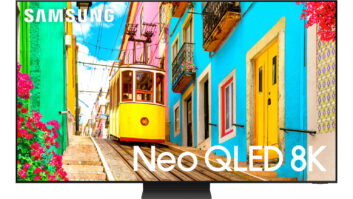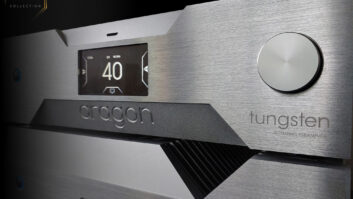NEW YORK -High-capacity MultiLevel (ML) Recording technology will add no more than a $50 retail-level premium to the price of a CD-R/RW drive, TDK said in releasing new details about the technology.
Standard-size MultiLevel CD-R and CD-RW data discs will cost only a suggested $2 and $3, respectively, the company added.
“There’s no tremendous premium to the drives or discs because of [current] production experience,” said TDK marketing director Bruce Youmans. The technology can be added to recording drives without changing a drive’s optics and mechanics, he said.
ML, co-developed with chipmaker Calimetrics, triples the capacity of data CD-R and CD-RW discs to 2GB from 650MB. It also triples writing speed without increasing spindle speed. The technology boosts capacity by allowing each mark on a CD to represent three bits of information rather than one, said Youmans.
On recordable discs, the technology writes marks in eight different shades of gray, allowing a single mark to store values from 0 to eight compared to standard CD-recording techniques that mark a disc with values of only 0 or 1. For prerecorded CD-ROM discs, the technology would vary pit depths to increase capacity.
TDK also revealed that the technology could be applied to triple the capacity of recordable DVD discs and Sony’s new double-density CD technology, which delivers 1.3GB CDs.
Youmans said TDK is also developing 650MB 80mm (3-inch) and 200MB 57mm (2.25-inch) recordable ML discs that could be used in portable audio products. In fact, TDK plans to offer its first portable music playback devices late in 2001, and the use of ML technology is being actively considered, he said.
TDK’s first ML hardware product will be a recordable disc drive due in the third quarter of 2001. It will offer 36x write speed on CD-R ML discs and 30x write speed on CD-RW ML discs. “Our hope would be to have portables in concert with the recording drive,” he said.
Estimated suggested retails for the 80mm CD-R and CD-RW discs would be $4 and $5, respectively, and $5 and $6 for their respective 57mm counterparts, Youmans said.
TDK touts the format as superior for portable music applications to Data Play’s planned 500MB write-once discs, which are slightly larger than a quarter and targeted to retail for $5 to $10.
Small discs could also be used for digital video cameras, and larger discs could be used for personal video recorders, professional audio mastering and game platforms, Youmans said. For PCs, standard-size discs would be useful for storing files that would otherwise clog up a PC’s hard drive.
TDK is positioning ML as a low-cost capacity-expanding technology that’s a lot cheaper than $1,000 recordable DVD drives and $19 recordable DVD discs. One drawback, however, is that ML discs aren’t playable on standard CD and CD-ROM drives. ML drives, however, will record and play back standard CD-R/RW discs.
TDK and Calimetrics are still looking for alliance partners and will promote the technology, but not demonstrate it, at CES. “We want to make this a defacto standard,” Youmans said.
So far, only OEM-drive maker Plextor has signed on to make hardware, which will be available in 2001, he added. Plextor targets the high-end professional-user market.
Calimetrics will begin producing sample chip quantities in April with volume production in time for third-quarter hardware launches.













